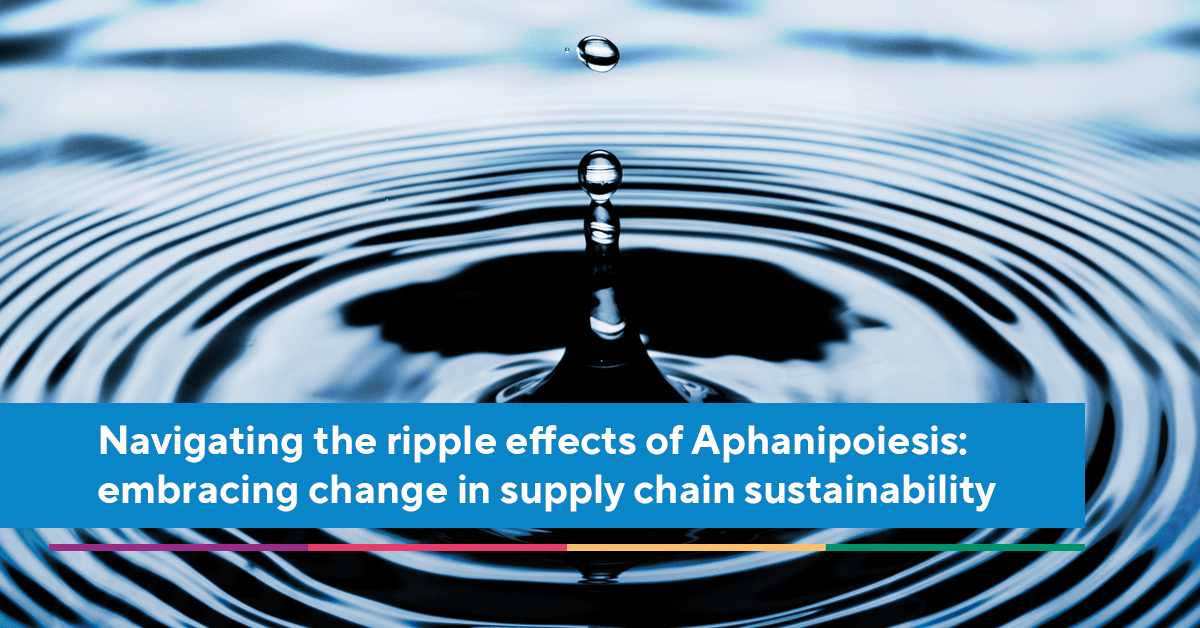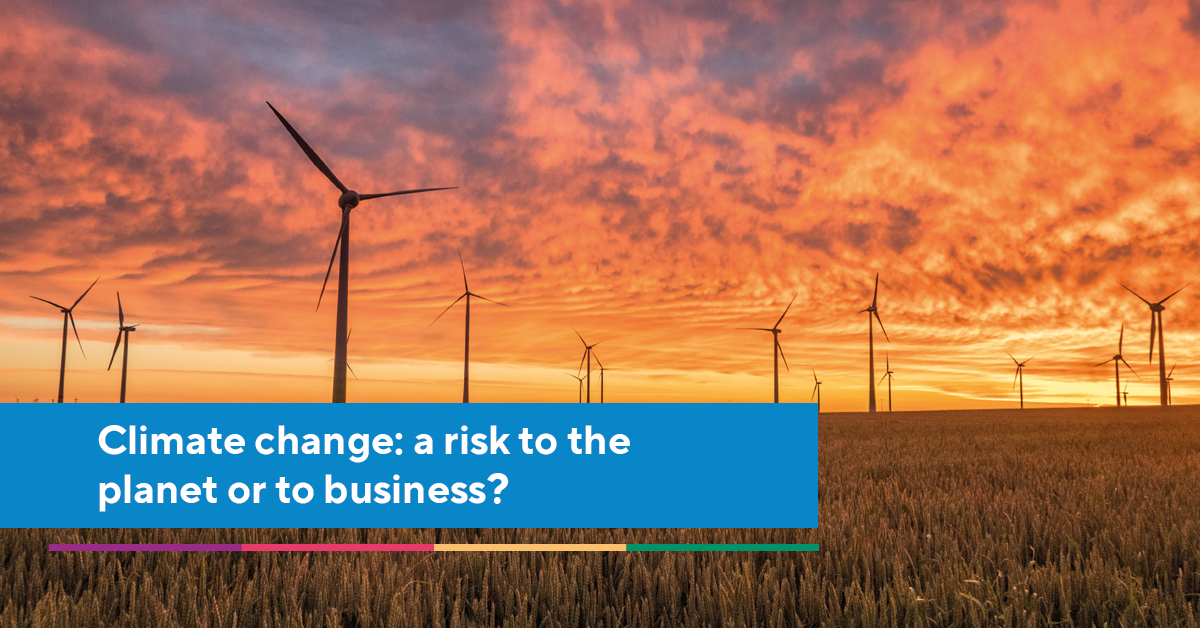In our work at Supply Pilot, a crucial aspect of what we do is helping manufacturers, brands and retailers drive positive change in their supply chains. While reading a paper on change management as part of a Systems Thinking course at CISL (Institute for Sustainability Leadership, University of Cambridge) I came across an interesting concept proposed by Nora Bateson - a new word called "aphanipoiesis," which describes the way life changes or evolves in unseen ways.
A possible definition of this word is "an unseen coalescence toward vitality."
Ms. Bateson offers a specific example of resource efficiency in her essay, questioning whether the popular notion of increasing energy or resource efficiency in business to reduce humanity's environmental footprint actually stimulates demand for the company's products, potentially causing uncertain effects on the environmental footprint. This made me pause and reflect on my own belief in resource efficiency, especially given the current state of businesses still recovering from Covid, energy crises, and inflation, and many sustainability initiatives being at risk.
In my presentation at the Velocity Institute summit, I discussed resource efficiency as a way to reduce waste, materials, energy, and risk, thus reframing efficiency. It aligns with Ms. Bateson's suggestion that sustainability can be achieved while costs are reduced. However, I also acknowledge the potential unintended consequences, such as driving over-consumption and generating waste elsewhere.
Despite these risks, the takeaway from the paper is not to resist change but to be ready for the ripple effects and be prepared to react. Instead of always fighting change, we should embrace the positive ripples and ride the waves while keeping the overall objective in sight. If we pursue resource efficiency solely to drive efficiency and reduce costs, we risk negative impacts. However, if we focus on using fewer resources and producing less waste, the outcome will always be net positive.
If a brand engages its suppliers to develop and sell more sustainable products, it is good for both the business and the planet. Furthermore, the less sustainable products will have to evolve to survive, just as in nature. In conclusion, change is inevitable, and the risk of unintended consequences will always exist. Therefore, we must embrace change while keeping the overall objective in sight and being prepared to react to any unintended consequences that may arise.




